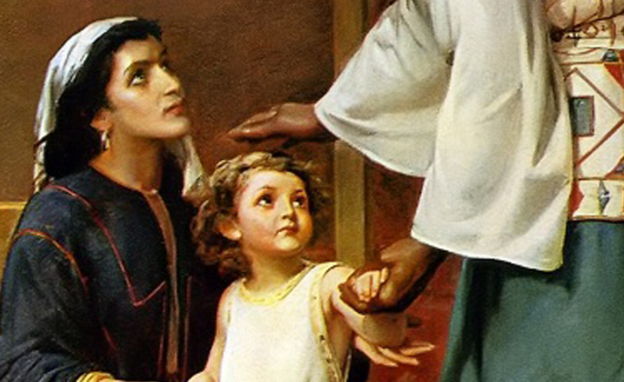Music is everywhere in our world. On our radios and televisions, on the internet, at pubs and at concerts. It is of varying quality, and varied value. Much of it is centred entirely on self, and our own desires. Music is important to the Church too, from what we sing on Sunday to what we listen to at home. Much of it is great, some of it sadly too centred on self.
In chapter 2 of 1 Samuel we encounter Hannah’s song of thanks. Hannah’s song is not centred entirely on self, but rather centred on God. Hannah’s song starts with her experience of God’s goodness in her life. It then expands to consider God’s goodness in general, before concluding with God’s ultimate goodness. Hannah’s song reminds us that every expression of God’s goodness to us is a teaser of the greater goodness to come under Christ’s eternal reign.
The first three verses of Hannah’s song is a prayer of thanks for God’s goodness to Hannah. Hannah was elated at God’s goodness to her in her distress, by granting her a son after many years of barrenness and cruel taunting by Peninnah (v.1). She described this elation as being like the lifting of her horn, like an animal lifting its horn as a symbol of its given strength and power over attackers (v.1).
In the second verse, Hannah confesses her faith in God. “There is none holy like the LORD: for there is none besides you; there is no rock like our God” (v.2). Amen! May we all sing and praise God as the only holy and true God we can rely on.
In verse three, Hannah offered rebuke to unnamed boasters who rely on themselves rather than God. She warned them not to speak arrogantly, because God “is a God of knowledge, and by him actions are weighed” (v.3).
Secondly, Hannah’s song expands to describe God’s goodness more generally. The way God has worked with Hannah is a small-scale example of the way God works generally.
Firstly, God reverses the fortunes of the proud and the humble. This is described poetically; God breaks the strong and uplifts the weak, and feeds the hungry while those who selfishly grabbed more than their fair share are left to find work to pay for food (vv.4-5). Jesus expressed the same truths in the Beatitudes in his Sermon on the Mount.
This poetic reversing was expressed in Hannah’s circumstances, where she once was barren but has now borne “seven”; not literally but symbolically fully blessed (v.5).
In verses six to eight, these ideas of God’s sovereignty over everything are expressed in ultimate terms. God brings everyone to death, and raises to new life (v.6). God makes people poor and rich (v.7). God makes people weak and strong (v.7). God lifts the poor and needy up to the height of the wealthy and powerful (v.8).
God does this because he can, because it is the way God is. God is the one who established the pillars of the world, and set the earth on it (v.8).
Thirdly, Hannah’s song expands from God’s goodness in general to God’s goodness to God’s goodness in God’s kingdom, when God puts all enemies under his feet (Psalm 2).
God will finally deliver his covenant people, those who are his “faithful ones” while the wicked and those who rebel against God are destroyed (v.9). All the might in the world is not enough to resist the Almighty God!
Hannah expected that final deliverance to come from a coming king. The final judgement of the earth and its people will be demonstrated through “his king,” the anointed one whose horn (might, strength) God will exalt (v.10).
While this book in the near term implies that this will occur through the appointing of a king over Israel, this statement ultimately finds its fulfilment in the one who all the earthly kings of Israel pointed: Jesus. The anointed one, the promised king of the line of David. The one who will judge the earth and its inhabitants, and finally consummate the eternal Kingdom of God on earth as it is in heaven.
The songs which we sing will often speak of the circumstances we found ourselves in, and how God has lifted us up. But truly Biblical music follows Hannah’s pattern, inspired by the Holy Spirit, of placing that redemption in the greater story of God’s goodness and salvation.
But Hannah’s song and praise help us to think biblically about our own state and God’s goodness to us. Every little good thing, every little victory over sin, is an expression of God’s power and sovereignty, and his goodness to us. It is a down payment of the greater redemption we enjoy in salvation through Christ.
While God does not promise to take away all our hardships and tears in this life, God’s goodness in the little things points to God’s ultimate goodness to us, when he defeats all opposition and sets us in his dwelling place with him, forever.

